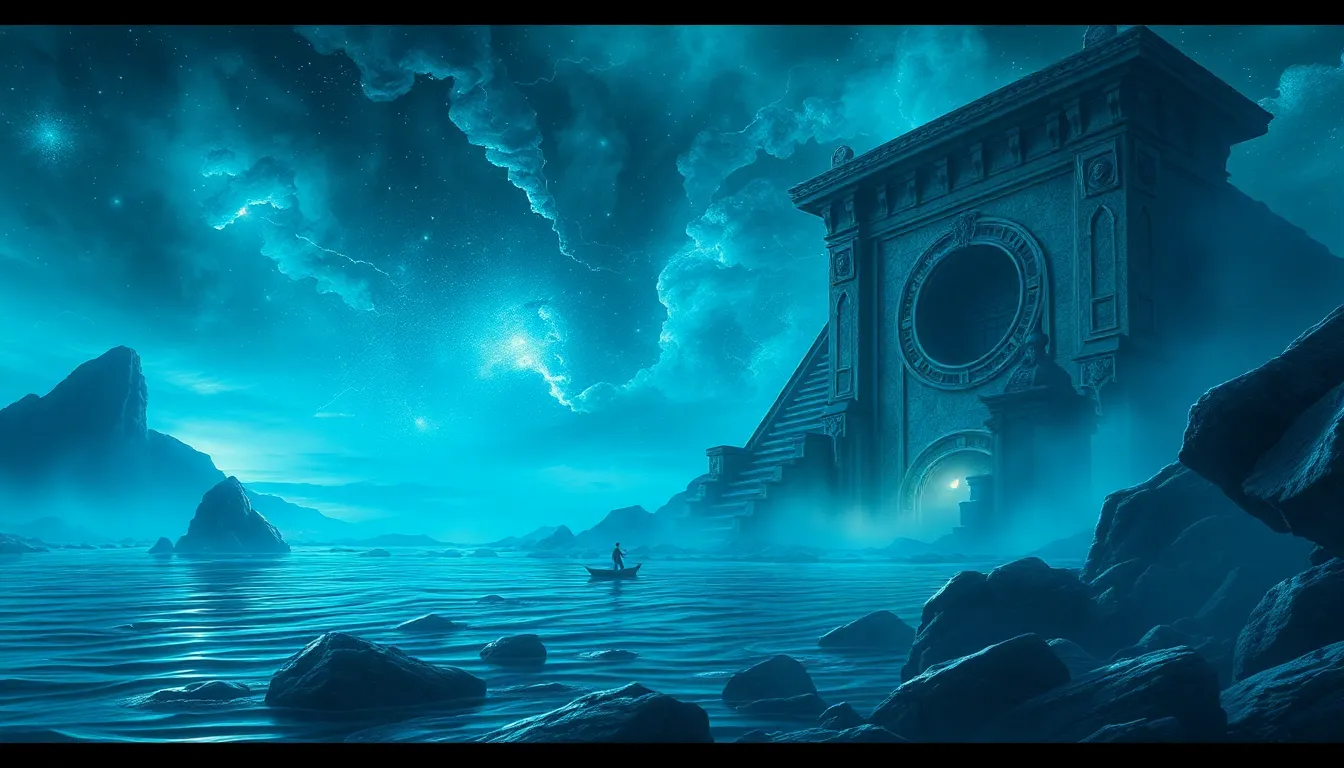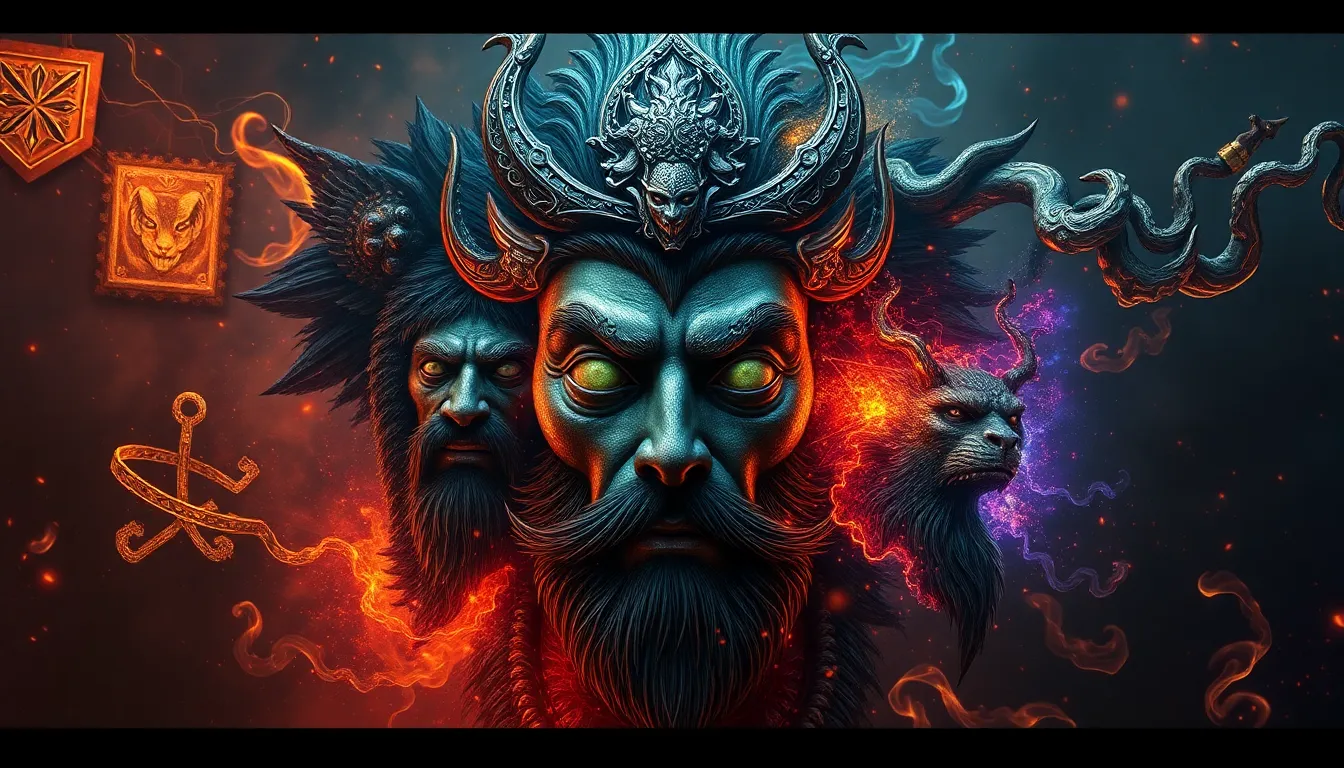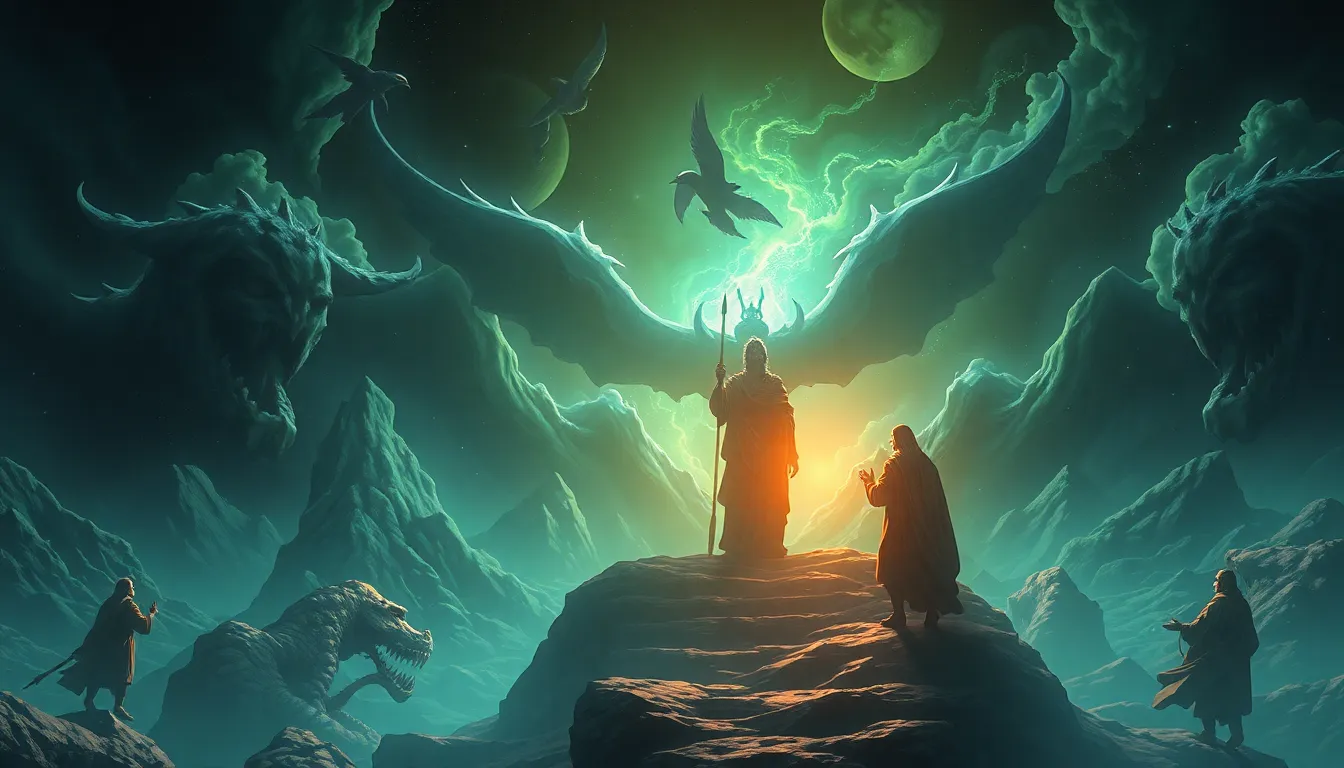The Island of the Lost Souls: Myths of the Afterlife
I. Introduction
The Island of the Lost Souls is a concept that resonates deeply within various cultures, symbolizing a realm where souls find themselves after death. Often depicted as a mysterious and isolated place, this island represents the complexities of human belief surrounding the afterlife. Myths and stories about what happens after death provide insight into cultural values and existential questions that have fascinated humanity for centuries.
Across different civilizations, afterlife myths serve as a means of understanding the inevitable reality of death. They offer not only explanations for what lies beyond but also reflections on life itself. This article aims to explore the various depictions of afterlife myths, particularly the notion of the Island of the Lost Souls, and the implications these beliefs hold for humanity.
II. Historical Context of Afterlife Myths
Afterlife beliefs have evolved significantly throughout human history, with early civilizations developing rich mythologies to explain the unknown. Ancient Egyptians, for instance, held elaborate beliefs regarding the afterlife, with the soul’s journey through the underworld being meticulously documented in texts like the Book of the Dead.
The role of mythology in understanding death is crucial; it provides context and meaning to an experience that is often feared and misunderstood. Various cultures have approached the concept of death with their own unique narratives. A comparative analysis reveals both shared themes and distinct differences in how these societies conceptualize the afterlife.
III. The Island of the Lost Souls in Various Cultures
The portrayal of the Island of the Lost Souls can be found in numerous cultures, each infusing the concept with its own beliefs and traditions.
A. Greek mythology: The realm of Hades and the concept of the Isles of the Blessed
In Greek mythology, the afterlife is primarily governed by Hades, where souls are judged and sent to different realms. The Isles of the Blessed represent a paradise for virtuous souls, akin to the notion of the Island of the Lost Souls.
B. Celtic interpretations: Tir Na Nog and the land of eternal youth
Celtic mythology introduces Tir Na Nog, a mythical land where souls are eternally young and free from the burdens of the mortal world. This idyllic setting serves as a counterpart to the darker portrayals of the afterlife found in other cultures.
C. Indigenous beliefs: The Spirit World in Native American cultures
Indigenous cultures in North America often depict the afterlife as a Spirit World, where ancestors guide lost souls. This connection to nature and the land emphasizes the continuity of life and death, as well as the importance of honoring those who have passed.
IV. Symbolism of the Island of the Lost Souls
The Island of the Lost Souls is rich in symbolism, often representing deeper human emotions and experiences.
A. The island as a representation of isolation and longing
Islands inherently evoke feelings of separation. The Island of the Lost Souls can symbolize the isolation experienced by those who have passed away, as well as the longing felt by the living for their departed loved ones.
B. Water as a symbol of transition and transformation
Water frequently appears in afterlife myths, symbolizing the transition between life and death. The journey across rivers or seas often represents the passage of the soul into the afterlife.
C. The role of nature in the depiction of afterlife realms
Nature plays a vital role in shaping the landscapes of afterlife myths. These realms are often depicted as lush, vibrant, and serene, offering solace and comfort to wandering souls.
V. The Journey to the Island: Myths of Passage
The journey to the Island of the Lost Souls often involves significant rituals and practices that facilitate the passage from life to death.
A. The significance of the river or sea in afterlife journeys
In many cultures, bodies of water serve as essential gateways to the afterlife. For example, Charon, the ferryman of Hades, transports souls across the River Styx, a prominent motif in Greek mythology.
B. Rituals and practices associated with guiding souls to the afterlife
- Funeral rites that honor the deceased
- Offerings made to deities or spirits to ensure safe passage
- Communal gatherings to celebrate the lives of those who have passed
C. The importance of burial practices and their connections to myths
Burial practices often reflect cultural beliefs about the afterlife. From elaborate tombs to simple markers, these rituals serve to honor the dead and provide a sense of closure for the living.
VI. The Souls Who Inhabit the Island
Lost souls inhabit various realms across mythologies, characterized by their unique narratives and experiences.
A. Characteristics of lost souls in different mythologies
Lost souls are often depicted as wandering spirits seeking resolution or redemption. Their characteristics vary; some may be portrayed as sorrowful and regretful, while others embody hope and peace.
B. The concept of redemption and punishment in afterlife narratives
Many myths incorporate themes of redemption and punishment, reflecting a moral framework that governs the afterlife. Souls may face trials or challenges that determine their fate in the afterlife.
C. The role of ancestors and their influence on the living
In many cultures, ancestors play a significant role in the afterlife narrative. They serve as guides and protectors for their descendants, influencing their lives and decisions.
VII. Modern Interpretations and Adaptations
The concept of the Island of the Lost Souls has permeated literature, art, and popular culture, reflecting humanity’s ongoing fascination with the afterlife.
A. The influence of the Island of the Lost Souls in literature and art
Many authors and artists have drawn inspiration from the idea of lost souls and afterlife realms, creating works that resonate with themes of longing, despair, and hope.
B. Representation in films and popular culture
Films often explore the journey of souls, depicting their struggles and triumphs in the afterlife. This portrayal serves both as entertainment and as a means of engaging with profound existential questions.
C. Contemporary beliefs and how they relate to traditional myths
Modern spiritual beliefs continue to draw from traditional myths, adapting them to contemporary understandings of life and death. This evolution reflects an ongoing search for meaning in the face of mortality.
VIII. Psychological and Philosophical Implications
The exploration of afterlife beliefs carries significant psychological and philosophical implications.
A. The impact of afterlife beliefs on human behavior and ethics
Afterlife beliefs often shape moral frameworks and ethical behavior, influencing how individuals live their lives and interact with others.
B. The psychological comfort provided by the notion of an afterlife
The idea of an afterlife can provide solace to those grieving, offering hope that their loved ones continue to exist in some form.
C. Philosophical inquiries into existence, death, and what lies beyond
Philosophical discussions surrounding the afterlife challenge individuals to confront their beliefs about existence, the nature of the soul, and the concept of eternity.
IX. Comparative Analysis of Afterlife Myths
Afterlife myths exhibit both similarities and differences across cultures, revealing universal themes as well as unique interpretations.
A. Similarities and differences in afterlife concepts across cultures
Common themes include the journey of the soul, the presence of judgment or evaluation, and the existence of a paradise or punishment. However, the specifics of these beliefs differ widely, influenced by cultural, historical, and social contexts.
B. The universality of the fear of death and the unknown
The fear of death and the unknown is a universal human experience, leading to the creation of myths that attempt to provide explanations and comfort. This shared anxiety fosters a rich tapestry of narratives that continue to evolve.




